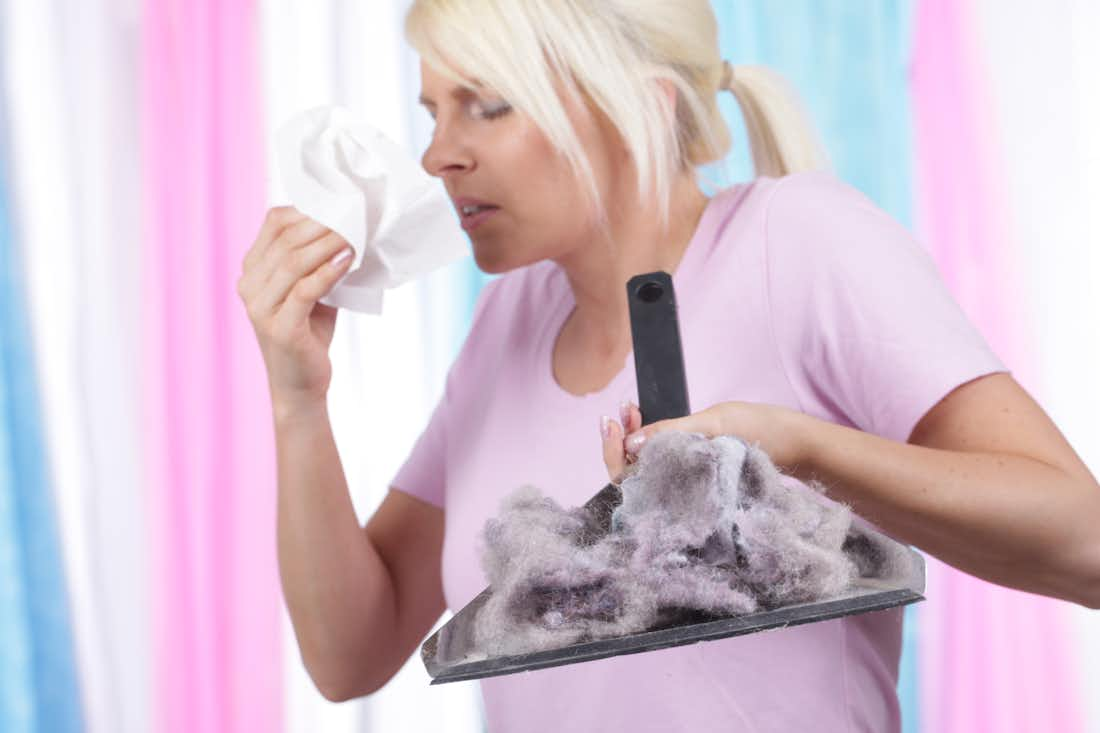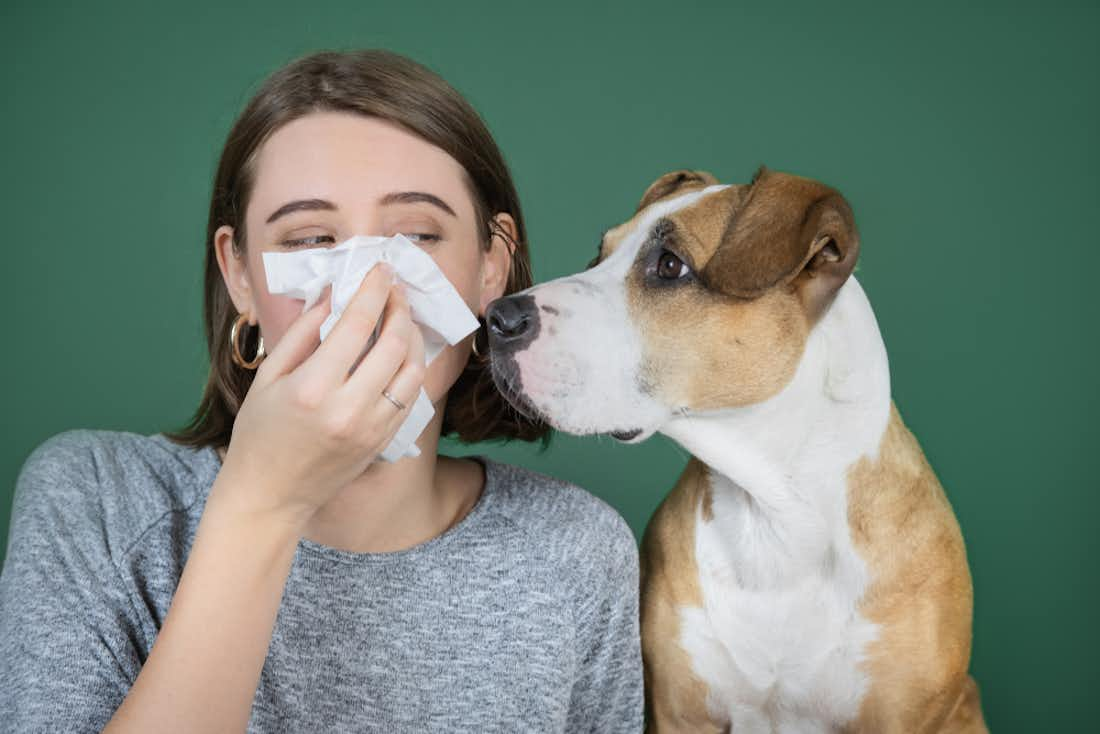Sep 16, 2021
Pros and Cons of Allergy Shots
5 minute read
If you’ve been dealing with your allergy symptoms for years, it’s time to give immunotherapy a try. This treatment method for allergies is often recommended to allergy sufferers who haven’t found the relief that they need with other medications.
Immunotherapy comes in two forms – subcutaneous and sublingual. Subcutaneous allergy immunotherapy (allergy shots) allows an immunotherapy treatment to be injected via a needle. Sublingual immunotherapy involves tablets that are taken orally. Both immunotherapy methods have their pros and cons, and it’s up to you to decide which one is best for you.
We’ll be uncovering how allergy immunotherapy works, as well as unpacking the pros and cons of allergy shots to help you determine which form of immunotherapy you should try.
At Cleared, we specialize in sublingual allergy immunotherapy. We favor this treatment method over allergy shots because it can be taken in the comfort of your own home.
To learn more about Cleared immunotherapy treatments, click here.
What Causes Allergies?
Understanding the root cause of your allergy symptoms is the first step on the path to an allergy-free life! So, let’s unpack the origins of your allergies.
Allergy symptoms are an inflammatory response within your immune system. This inflammatory response is triggered when your immune system registers a foreign substance – pollen, for example – as a threat. Even though pollen is technically harmless, your immune system might misidentify it as dangerous and kick into emergency mode. The result? Uncomfortable, troublesome symptoms like itching, sneezing, runny noses, and more.
Allergy Immunotherapy Explained
The way immunotherapy works might surprise you – it involves getting closer to your allergy triggers, not avoiding them.
When you get immunotherapy treatment, you’re getting exposed to the triggers of your allergy symptoms in tiny amounts.
By building up your immune system’s resistance to your allergy triggers over time, immunotherapy can help to reduce your symptoms in the long run. Consistent immunotherapy treatment can sometimes even eliminate the need for other allergy medications like antihistamines.
What Can Immunotherapy Treat?
Immunotherapy is often used as a treatment strategy for patients whose allergies are triggered by airborne allergens. These include dust mites, mold, pollen, and animal dander.
However, immunotherapy isn’t used to treat food allergies. In that case, their allergist will typically recommend that they carry auto-injectable epinephrine shots with them everywhere they go and avoid the food that they are allergic to at all costs.
Is Immunotherapy Safe?
When you’re receiving immunotherapy treatments under the watchful eye of an experienced allergist, you’re in good hands! Because immunotherapy exposes you to the cause of your allergy symptoms, there is always the potential that you’ll experience a negative reaction.
While bad reactions to immunotherapy are uncommon, your allergist will make sure that everyone is prepared in case you start dealing with symptoms.
Allergy Shots: The Pros
Subcutaneous allergy therapy, AKA allergy shots, is a unique treatment method in a few key ways:
Allergy Shots Can Change Your Immune System’s Response to Allergens Over Time
This is a big deal for allergy sufferers, especially those with crippling symptoms. Immunotherapy is considered one of the best ways to build up your immune system’s resistance to airborne allergens.
Shots Can Target Multiple Allergens at Once
Your allergist can use shots to expose you to small amounts of the main allergens that trigger your symptoms. For example, if you’re allergic to both tree and grass pollen, shots can be used to get your immune system used to these triggers over time.
You Won’t Have To Keep Increasing Dosages Forever
Once your allergist has reached a certain dose level, they’ll keep administering shots of this dosage to treat your allergies. At this point, your allergist will start giving you a maintenance dose, which you may have to keep getting indefinitely. However, this maintenance dose can keep your allergy symptoms from getting out of hand. For many people, that makes the frequent visits to the allergist worth it!
Allergy Shots: The Cons
While there are several big perks to getting allergy shots, there are also some cons that are worth knowing about.
Subcutaneous Immunotherapy Can Sometimes Cause a Bad Reaction
Since allergy shots involve injecting an allergen directly into your body, there’s always the potential for worrisome symptoms to pop up after you receive a dose. In the rarest cases, you might start having an anaphylactic reaction, which can be life-threatening if left untreated.
Fortunately, your allergist will know exactly what to do in the unlikely event that you have a severe reaction.
Allergy Shots Are a Year-Round Treatment
For people who get allergy shots, treatment starts on a weekly basis for several months until the maintenance dose is reached and then treatment is continued monthly year around. On the other hand, immunotherapy tablets can be taken from home during the season when your allergies are worst and depending on what you are allergic to; this can be done only during season or they may be taken year around.
The time commitment and higher costs that come with allergy shots make this treatment method a bit too intense for some allergy sufferers. In addition, if you typically only deal with allergies during one specific part of the year, you may want to consider sublingual treatment over getting shots.
The Bottom Line on Allergy Shots
Everyone’s allergies are different. At Cleared, we never recommend a “one-pill-fits-all” treatment strategy for allergies, including when immunotherapy comes into the picture. If you’re dealing with severe allergy symptoms, it’s definitely worth giving immunotherapy a try. However, given the cost, intensity, and frequency of allergy shots, we at Cleared favor the sublingual treatment method whenever possible.
Curious about immunotherapy and what Cleared can do for you? Click here for more info.
Reviewed by Dr. Payel Gupta
Sources:
Sublingual Immunotherapy (SLIT) | Allergy Treatment | ACAAI Public Website
Allergy Shots (Subcutaneous Immunotherapy) | Allergy Treatment | ACAAI Public Website



